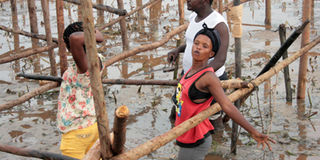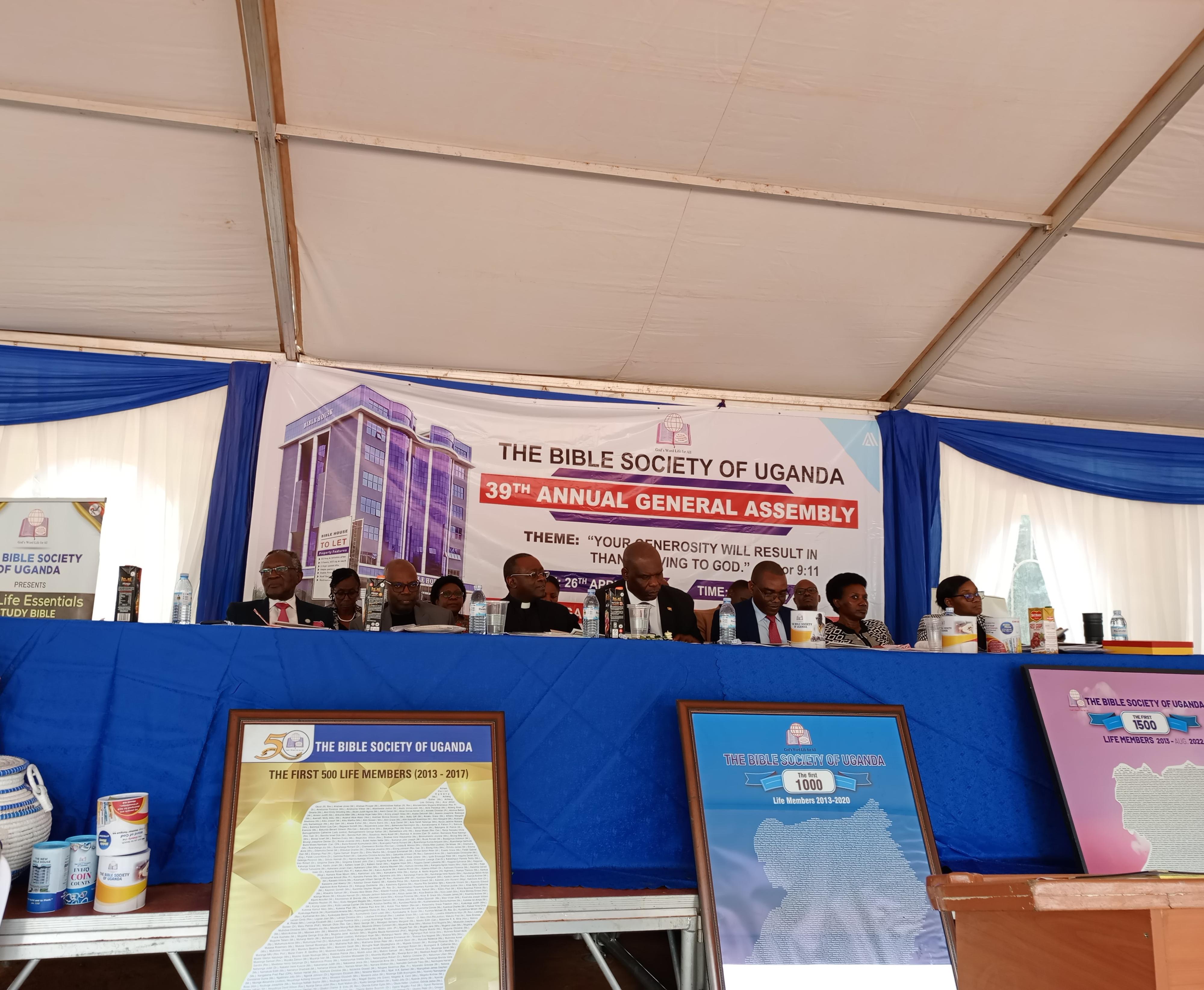Wetland under siege

Lubigi wetland. People apportion themselves parts of the wetland This is not the first time the land is under the spotlight. Earlier, NWSC had set aside a chunk of the land for construction of a sewage system. PHOTOS BY JOHN NJOROGE.
What you need to know:
Lubigi wetland has been in the limelight with people trying to take chunks of land to turn into stalls. What most do not know is that it more than just a swamp, John Abimanyi writes.
Whenever it rains, and majority of Ugandan farmers elsewhere take turns thanking God, residents of Bwaise, and a few nearby sites like Kalerwe, would rather send curses instead. Every time it rains, even for brief five-minute squirts of a downpour, Bwaise catches a cold. Houses are immediately flooded and at that time, water, the source of life for many, becomes the very route of its destruction for others.
The leading cause for all this misery is Lubigi wetland, the depreciating greenbelt that was set to emaciate even further and give way to a market. Some called themselves army veterans, while others said they were simply impoverished folk, just seeking a viable business venture. But as they decided to ferry thousands of tree poles into a vast section of the wetland, they could easily have missed the point that their very action was yet another nail in the coffin for Bwaise, where most of them stay.
The recent move to reclaim a section of Lubigi into a market comes at the end of a long chain of wetland abuse that has seen large chunks of Lubigi reclaimed in the past, constricting it in the process, and, making the lives of Bwaise residents a living hell in the end.
Troubled wetland
The first step into the troubles of Lubigi, and Bwaise as well, was the reclamation of the land for human settlement. This was twofold, with settlements on the slopes leading into the wetland and in the valley itself. The senior wetlands officer at Ministry of Water, Vincent Barugahare, says construction on the slopes rid them of the vegetation cover that would help trap or even check the speed of running water as it drains into the valley.
And then an upsurge of migration into Kampala, especially towards the 1990s, saw many mainly poor migrants resort to the valley after the Makerere and Mulago hills. Where papyrus used to stand in water, houses took over, and Lubigi wetland then started mutating into a bottleneck. Thanks to the settlements that increased by the day, waste management soon grew into the devil that would plague the wetland.
The secretary for Namungoona Zone, Sam Kayongo, says the mismanagement of non-biodegradable waste, especially plastics, has clogged and choked the wetland’s water channels. Many sections of the wetland are now typified by sights of used mineral-water bottles and polythene bags floating about.
Mr Barugahare says waste in the wetland has blocked the water’s channel, which in times of rain, leaves the increased levels of water with no passage, forcing them into a back flow and then retreating into the Bwaise settlements, or, over the channel’s banks.
Construction of the Northern-by-pass also ate into the wetland’s pie. Mr Barugahare says the construction of the road, which included digging deep and piling lots of soil lowered the water table and soon rendered the boreholes constructed near the road useless. A number of these boreholes, fenced in red metallic cages, have been running dry for over six months, residents said.
The wetlands officer says the road has ended up acting like a dam, preventing water from the hills running down into Lubigi, and hence causing floods to form by its side. He added that the presence of culverts had not made any difference as many of them were blocked by silt and waste.
And then, the National Water and Sewerage Corporation (NWSC), with the blessing of National Environmental Authority (Nema), set aside a chunk of the wetland for construction of a sewage treatment site. Mr Barugahare says Nema went against advice to endorse construction of the plant on the wetland’s edges but opted for right in the middle, east of the Namungoona roundabout, which further constricts the wetland and causes more flooding.
Nema publicist, Naomi Karekeho, however said the parts where the plant would not be standing would be restored back into the wetland. “There are activities that are allowed inside a wetland and sewage treatment is one of them. Too bad they have to use concrete and soil,” she said.
Grave national concern
In many ways, the story of Lubigi offers great symbolism for the state of affairs in Uganda as a whole. The presence of settlements in Bwaise and other evidently low lying wetlands is an indictment on planning authorities, who have allowed such developments to go ahead right under their watch. Kampala is an extremely hilly area, meaning it has just as many valleys. But nearly all such low lying lands have been motored into business districts causing a drainage disaster in the end.
The belt around Nakivubo channel, stretching from Makerere through downtown Kampala near the New Taxi Park and Owino, plus the Nakawa and Ntinda’s Industrial area, which leaves the main Jinja highway flooded for hours on end after a downpour, are just a few examples to exemplify this.
The long hand of land grabbing that has plagued this country in the recent past is also too large to go unnoticed in the Lubigi saga. Although constructors of the stalls in the market say it is they who funded the project, it is hard to fathom how impoverished residents who have even failed to pay for vending licenses in the city centre could afford to buy truckfuls of tree poles, hammers and nails, and construct the stalls by themselves.
Now, hundreds of armed soldiers crawl the vicinity of the planned market at the wetland like a war zone. In the shadows of the houses nearby, residents who constructed the stalls peep from a safe distance.
Many did not even realise the environmental importance of the wetland. “If they could allow a sewage treatment plant here, why not a market?” one asked – a damning piece of insight into our attitude towards the environment as a country.




